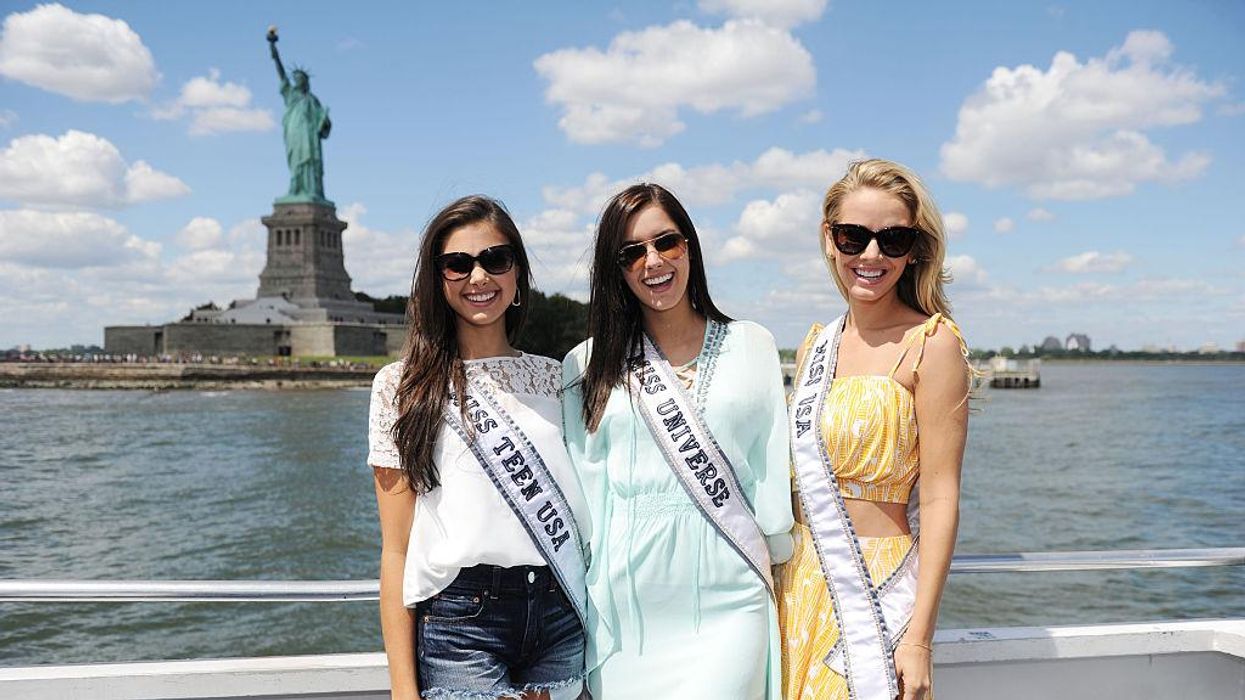
Photo by Craig Barritt/Getty Images for Ride Of Fame

The U.S. Court of Appeals for the Ninth Circuit ruled on Wednesday that a national beauty pageant doesn't have to include a transsexual claiming to be a woman.
A 2-1 majority on a three-judge panel determined that the Nevada-based Miss United States of America pageant's message about womanhood cannot be divorced from its selection of participants. Forcing the pageant to accept the transsexual plaintiff would "fundamentally alter" the pageant's "expressive message in direct violation of the First Amendment."
"Anita" Green is a transsexual Democrat from Oregon who claims to be a woman. Green started taking hormone replacement therapy at the age of 18. Green claimed in a 2017 opinion piece that he "started living full time" as a "woman" at the age of 19.
Green has been permitted to compete against real women in a number of pageants including Miss Montana USA, Miss Earth, and Ms. World Universal. Although Green missed the Miss Montana top ten by a long way, Green was the titleholder for Miss Elite Earth Oregon in 2019.
In 2019, Green was barred from Miss United States of America's 2019 Oregon pageant on the basis that Green is not a woman. The rules for the United States of America Pageants (Teen, Miss, and Ms.) all require that entrants are "natural born female[s]".
Green told Willamette Week, "I felt as though I was being invalidated ... I felt as though the organization was saying I am not woman and I'm not woman enough."
Green, precluded from edging out biological women in Oregon to compete with 49 real women nationwide, sued the pageant in December 2019.
The Oregonian reported that the suit Green filed in a U.S. District Court in Portland contended that while the Nevada-based pageant corporation is a private business, the way it operates requires that it follow Oregon public accommodation law.
Green's lawyer said the "Defendant's 'natural born female' policy is not only unlawful, but it sends a hurtful and false message to transgender women that they are not women. Pageants that operate in Oregon must comply with Oregon law and may not discriminate on the basis of gender-identity."
The U.S. Court of Appeals for the Ninth Circuit reckoned otherwise.
The federal appellate court voted 2-1 in favor of the Miss United States of America pageant, ruling none of Green's arguments were persuasive.
Judge Lawrence VanDyke, who sided with the pageant, wrote for the majority: "As with theater, cinema, or the Super Bowl halftime show, beauty pageants combine speech with live performances such as music and dancing to express a message. ... And while the content of that message varies from pageant to pageant, it is commonly understood that beauty pageants are generally designed to express the ‘ideal vision of American womanhood.'"
VanDyke noted that the pageant's constitutionally protected message concerning what constitutes womanhood and what female qualities ought to be extolled "cannot be divorced from the Pageant's selection and evaluation of contestants."
Type, quality, and group selective casting is neither unprecedented nor always controversial.
The court referenced the Broadway musical "Hamilton," noting that the "expressive decision" to cast nonwhite actors to play white Founding Fathers was "applauded," but also believed to be "central to the message of the musical itself. ... And this message could be delivered only by excluding certain people from performing."
Similarly, in a production such as a women's pageant, the decision to have particular kinds of participants (women) is central to the message, in this case, about womanhood.
VanDyke wrote that the Miss United States of America pageant "would not be able to communicate 'the celebration of biological women' if it were forced to allow Green to participate."
The First Amendment protects the pageant's right to voice this message and "mandates that we presume that speakers, not the government, know best both what they want to say and how to say it."
VanDyke quoted another judgment, writing, "'There can be no clearer example of an intrusion into the internal structure or affairs of an association than a regulation that forces the group to accept members it does not desire.'"
The AP reported that John Kaempf, the attorney representing the pageant, recognized the court's dismissal of Green's lawsuit as "simple fairness."
Kaempf said, "The Ninth Circuit's conclusion says it all: 'Green asks to use the power of the state to force Miss United States of America to express a message contrary to what it desires to express. The First Amendment says no.'"